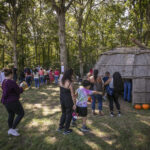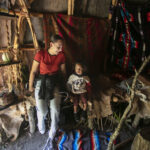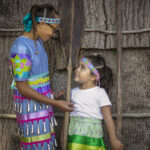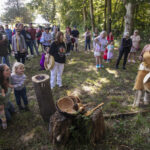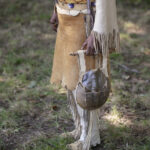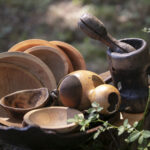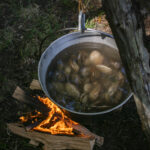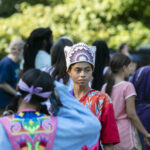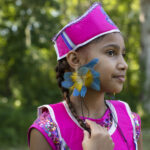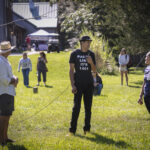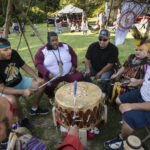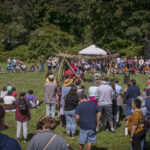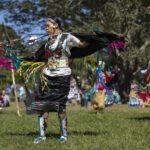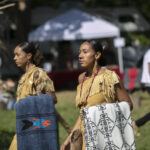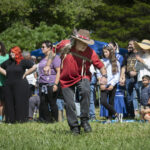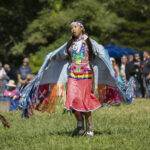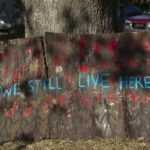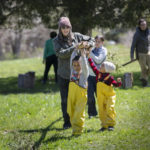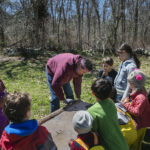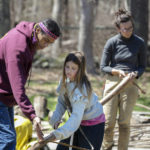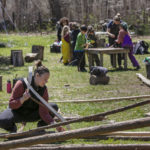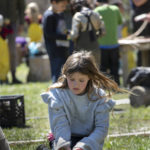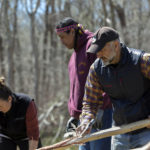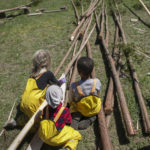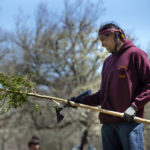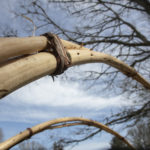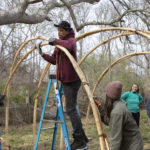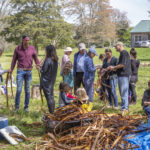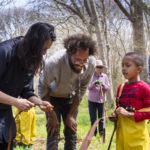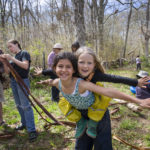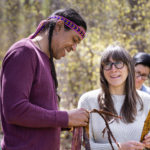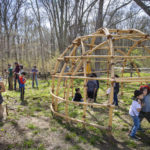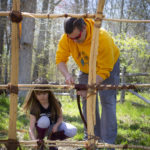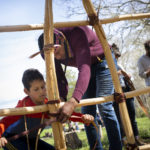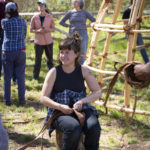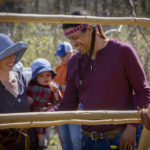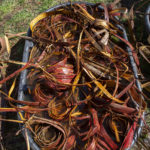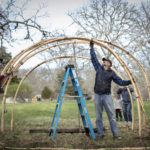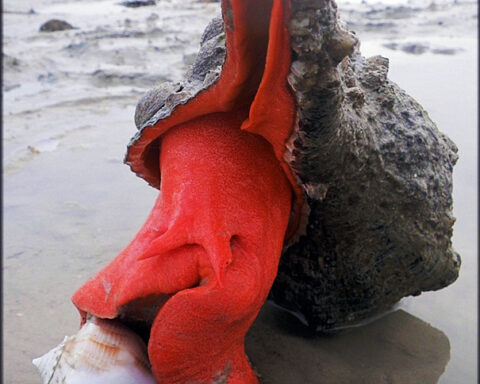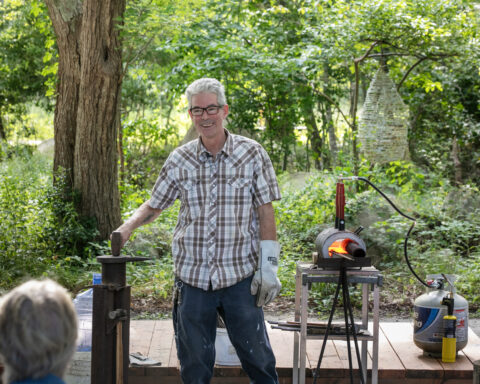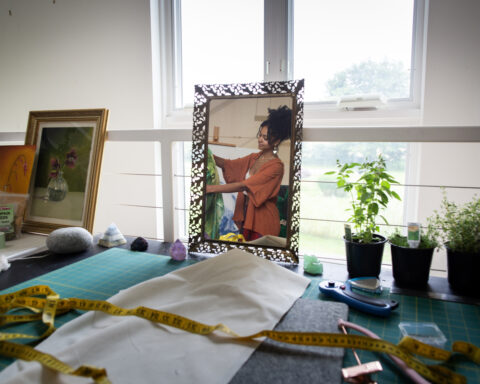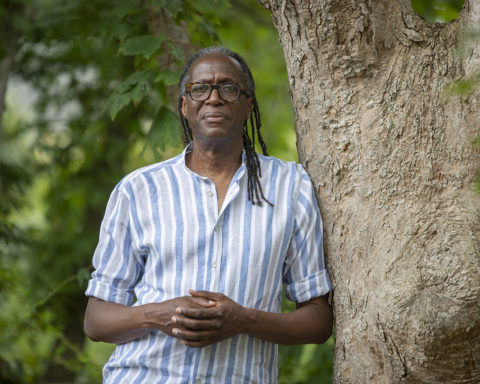The Wampanoag Experience provides opportunities to participate in Wampanoag traditions and lifeways to highlight Native wisdom and build bridges amongst diverse peoples. Native approaches to environmental sustainability, community & governance, history, arts & crafts, and other topics are featured, the kick-off project being the communal building of a traditional Wampanoag wetu residence, under the guidance of Wampanoag Annawon Weeden, on the grounds of the Round the Bend Farm, South Dartmouth, MA. The wetu is available to the community at at Round the Bend Farm on Open Farm Days or by appointment.
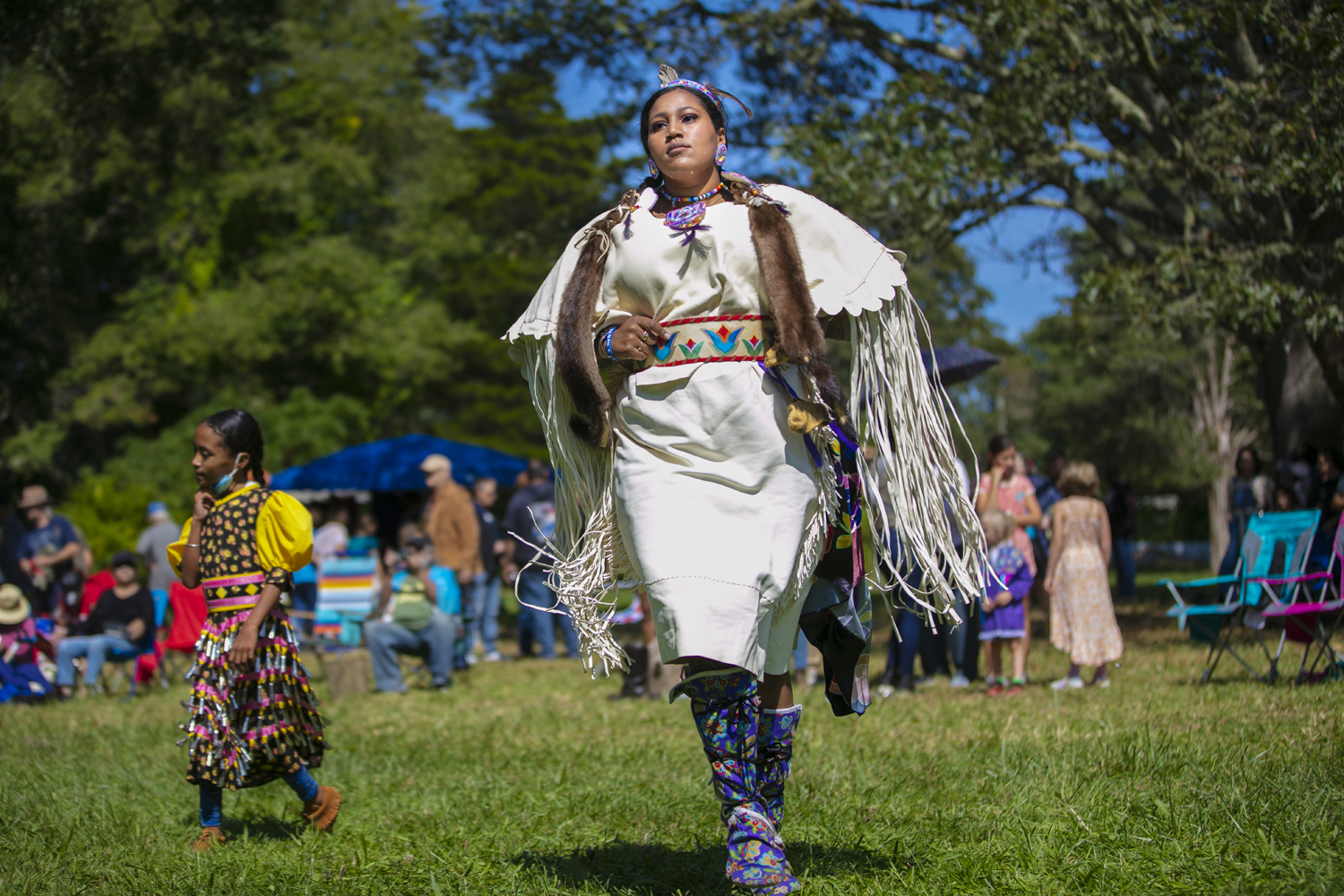
On Saturday, September 17, 2022, the first annual pow-wow presented Native activities such as dancing & drumming, arts & crafts, farming demonstrations, Native food vending, story-telling, etc. Additional Wampanoag Experience events are in the planning stage and will be announced as finalized.

Peter Crawley, Annawon Weden and Desa VanLaarhoven worked in tandem to create the wetu and organize the powwow which brought over 2000 people to Round the Bend Farm on September 17th!
Images from the powwow at Round the Bend Farm
Some questions about the project for Peter Crawley:
Please tell us what inspired you to want to work with Wampanoag tribal members to create a Wetu, a traditional Native American dwelling at Round the Bend Farms.
For the past 3 years I worked on a land conservation project in the Muddy Pond area of Kingston, Massachusetts. The donor organization and I came to the conclusion that the land would be well stewarded by indigenous peoples and would also present an opportunity for them to share their practices with the community – including the land conservation community. So in January of this year a land-return was made to the Native Land Conservancy, a Wampanoag founded and run organization. It was through my relationship-building with the Wampanoag community that I met Annawon Weeden and learned more about Wampanoag native life-ways and the building of traditional wetus. Wetus are round organic structures made from natural materials and ingeniously engineered. The communal construction of a wetu provides hands-on teachings about natural materials (flexible cedar saplings, peeled bark fastenings, waterproof bark roof coverings), as well as teamwork and a deep appreciation for the gifts of nature.

I was inspired to bring a traditional wetu and Native educational programming to the Westport area because I saw and felt the presence of historical Wampanoag settlements here, as evidenced by the many Wampanoag place-names in the area, such as Cuttyhunk, Noquochoke, Sakonnet, Acoaxet, etc. I wanted to honor the indigenous inhabitants of the area and help answer the questions: Who were/are the Wampanoag? How did/do they live? What did/do they believe? I feel deeply that there is great wisdom in the Wampanoag culture and traditions and many timely lessons, including around environmental sustainability and biodiversity, they can share.
Can you give me an idea of what educational programs you would like to develop using the Wetu, and what opportunities it will provide to learn about Wampanoag culture?
Annawon and I believe the wetu provides a window into Wampanoag culture and stimulates curiosity among all who experience it. More formally, we conducted public workshops for residents to help with the final phase of the wetu construction, as will have a Wampanoag day of cultural events/pow-wow at the Round the Bend Farm on September 17 that will feature Native arts & crafts, drumming, dancing, story-telling, etc. We hope these events raise awareness of Wampanoag history and traditions and generate an appreciation of Native ways of relating to nature, arts and community. This programming aligns with the current governmental and academic appreciation for the Traditional Ecological Knowledge (TEK) of indigenous peoples.
In addition to grant related programming, the Round the Bend Farm will integrate the wetu into their many public education programs, including their Elements Nature Program, a year-round school for students 4-10 years old that uses the farm as a living classroom. Round the Bend Farm has a strong local following and will attract many visitors to the wetu and the Sept pow-wow. We are very grateful to the Farm for collaborating with us on this project and feel a deep alignment with their values and mission. We are also grateful to the Westport Cultural Council, Helen E. Ellis Trust, for their generous support.
How would you like to see this project develop into the future?
Our vision is for the wetu and Wampanoag programming to become building blocks for on-going exploration of indigenous history and culture and to foster collaborations with other local associations, such as the Westport and New Bedford historical societies and the various area land trusts. For example, we are already talking with the Westport Historical Society about integrating the story of Paul Cuffee, a local Revolutionary War era whaling ship owner, humanitarian and Wampanoag. Mr. Cuffee lived in a wetu in the Russells Mills area and also founded a free local school open to all students, including Native and African American children – which may be the first such school in the nation! The Westport/Dartmouth area has a rich Native story that merits being told!
To stay informed of our events, we welcome residents and associations to monitor Round the Bend Farm (www.roundthebendfarm.org) or email Peter Crawley at pcrawley@satoria.com
The Finished Wetu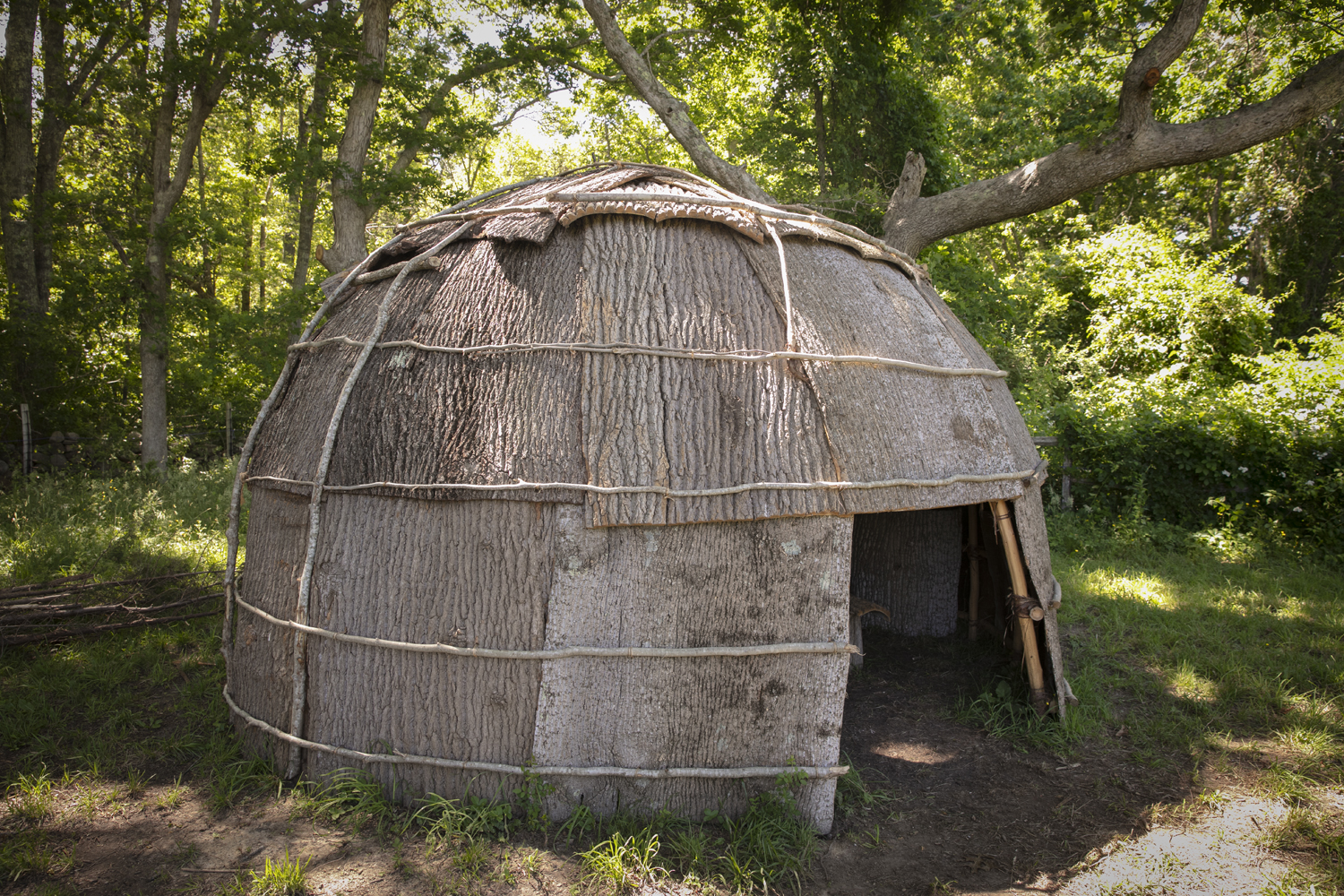

Please click here to check out The New Bedford Light article by Hartman Deetz, Mashpee Wampanoag tribal member, for more insights.

